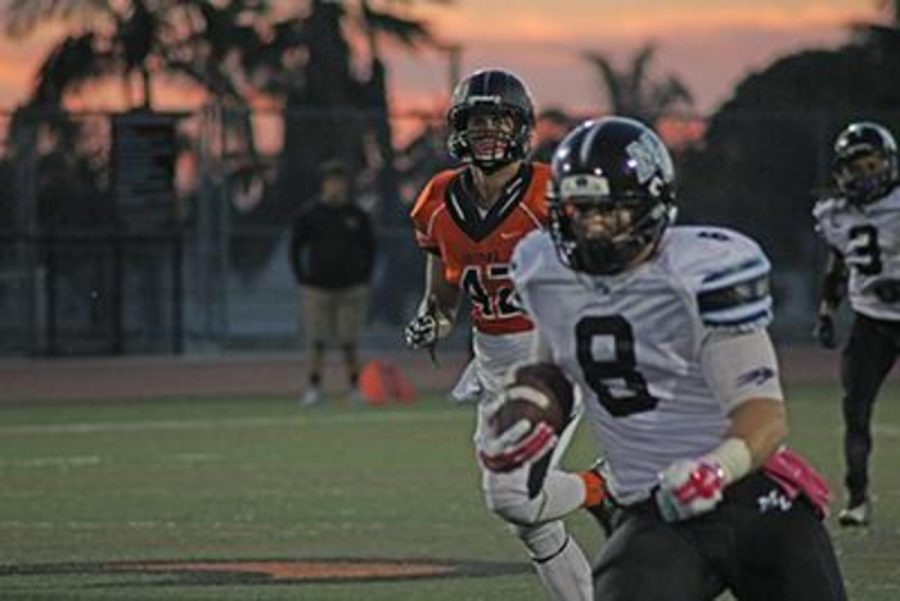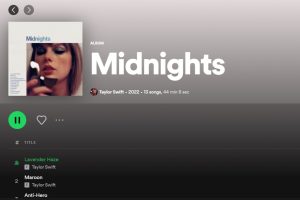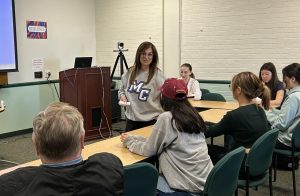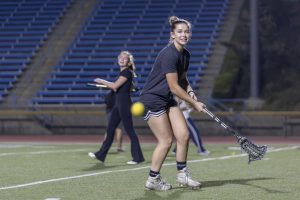Time to change professional sports collegiate rule is now
Cody Tuttle makes his way down the field after catching a pass from Quarterback Zach Labar. This came after a Moorpark loss to rival Ventura in the 2014 season. Photo credit: Chase Oliver
March 24, 2015
After high school, each person has to make a choice about whether going to college is the right path for them to embark on. Each case differs depending on the given individual but for some despite the freedom this country has given them; they are required to attend college in order to reach the profession they so desperately want.
Any athletes who wish to have a career playing in certain professional leagues, are required to attend college before they can become eligible for their respective draft. The NFL requires that athletes attend college for a minimum of three years before they can enter the league, while the NBA requires only one year for eligibility. The only alternative for prospective NBA athletes is the option of playing overseas for a year after high school instead. However, in the MLB and NHL, there is no collegiate requirement, but players must be at least 18-years-old.
If an athlete feels that they are ready to compete on a professional level immediately after high school and a team is willing to give them a chance, then they should be allowed to do.
“I don’t think that athletes should be treated any differently than others,” said Moorpark athletic director Howard Davis. “If Bill Gates can leave school and make millions than everyone should be given that same chance.”
The result of athletes being required to attend college is that often times they lose focus on their acedemics and instead focus solely on their respective sport. This is exemplified especially with basketball as we are now seeing a massive increase of “one and done” players since the NBA instated their eligibility rule back in 2006. Some recent examples of “one and dones” are Julius Randle from Kentucky, Andrew Wiggins from Kansas, Jabari Parker from Duke, and Aaron Gordon from UCLA, all of which are now in the NBA after just one year of college.
“I don’t like one and done athletes,” said Davis. “It’s great to watch for the fans but the students don’t focus on the education part of college when they do it.”
For some athletes the college rules can be a good thing as they are not mentally or physically ready for the professionals. Yet for others it could mean wasting time and paying for schooling that they don’t even take advantage of.
“It is different for everyone but it could be good for the students,” said Moorpark football wide receiver Cody Tuttle. “A lot of times athletes aren’t ready for the professional leagues out of high school, they don’t realize how physically or mentally draining it can be.”
For some going straight into a professional league from high school pans out and in other cases it doesn’t, but the choice should be left completely up to the athletes themselves. Athletes are no different from anybody else so why take away their freedom to try and prove themselves in the profession that they love.
It isn’t right, and the rule for both the NBA and NFL should be changed to allow the athletes to make their own judgment call on whether or not they attend college. We live in a country where everyone has opportunity to succeed and make their own choices. How is it fair that certain athletes are being forced to put a hold on their career?
“I think the reality is there’s been a lot of players who’ve come out of high school,” said Kobe Bryant, Lakers star who entered the NBA straight out of high school. “If you do the numbers and you look at the count, you’ll probably see players who came out of high school that were much more successful on average than players who went to college for a year or two or however long. It seems like the system really isn’t teaching players anything, if you go to college.”








